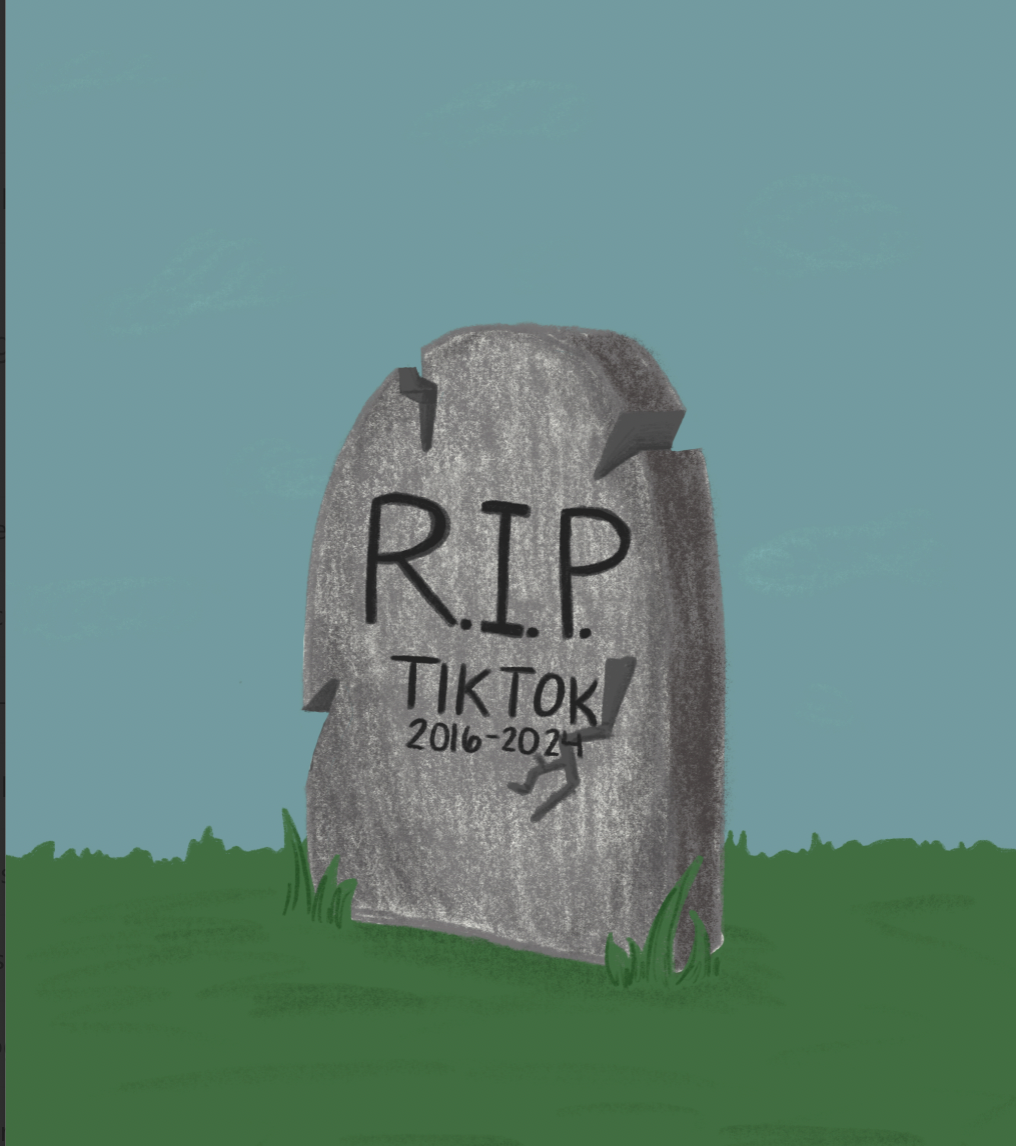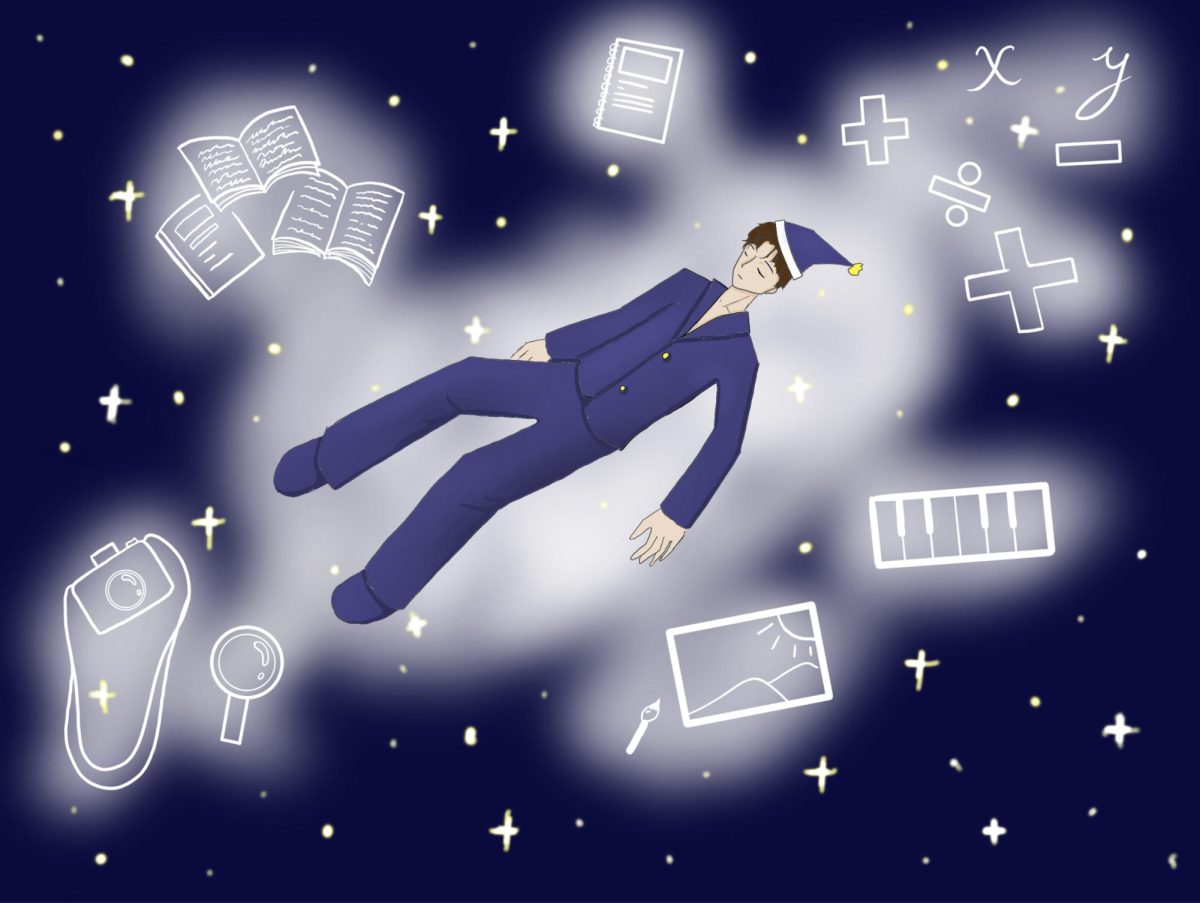According to business insider, every spring following the day light savings change in which we lose an hour of sleep, U.S. hospitals report a 24% increase in heart attacks. Every fall when we gain an hour of sleep, heart attacks decrease by 21%. Sleep is so essential that small disruptions cause a significant difference in bodily health, and optimizing sleep can improve one’s quality of life.
Experts agree that adults should get about eight hours of sleep per day, but the optimal amount for teenagers is closer to 10. In a high-achieving school like Hill, 8 hours of sleep can be viewed as a best-case scenario when it is the bare minimum for teens.
“Sleep is the greatest tool we have, that is 100% within our control, as humans. If utilized properly it can have unbelievably positive effects on our mental and physical well-being. For Hill students the much sought after eight-hour mark of sleep is in fact very achievable with a little bit of discipline and scheduling,” Colin McLenaghan ’24 stated in a text message.
Sleep deprivation negatively impacts every facet of the body including the brain, the cardiovascular system, musculature, skin, and even hair. Sleep deprivation has strong correlations with early all-cause mortality and morbid obesity.
According to Medical Director Dr. Kristin Spencer, brain maintenance processes are performed by the body primarily during sleep, specifically by the glymphatic system which removes harmful waste products from the brain and central nervous system. These maintenance processes are essential for academic performance. The optimal function of the central nervous system is critical to athletic performance because this is what controls the force with which muscles contract as well as reaction time and precision of movement.
Spencer elaborated that the glymphatic system is highly active during non-REM (quiescent) sleep. Non-REM sleep is also increasingly recognized as critical to learning and memory, making it an essential factor in academic success.
Several studies have correlated sleep-deprivation with obesity, and this can be attributed to the hormones ghrelin and leptin. The less people sleep the more they produce ghrelin, the hormone that signals hunger to the brain. Leptin has the opposite effect, signaling satiety, and is produced in lesser quantities with sleep deprivation.
These hormones make sleep an important contributor to body composition, the ratio of fat mass to muscle mass in the body. According to The National Library of Medicine, acute sleep deprivation decreases muscle protein synthesis by close to 20% in consistent weightlifters, as well as decreasing plasma testosterone levels by close to 25%
A single night of poor sleep is sufficient to create anabolic (muscle-building) resistance and promote muscle-atrophy. For athletes or those looking to improve their body composition, sleep deprivation has a tri-fold detrimental effect. The suboptimal function of the central nervous system will decrease training quality, the hormonal changes will decrease diet quality, and the sleep deprivation itself will hinder muscle growth.
Sleep deprivation also harms the immune system and increases the chances of becoming sick. In a 2015 study by UCSF researchers, it was found that individuals sleeping 6 hours or less per night had a 40% higher risk of developing the common cold and often required more time to recover from the illness.
Even more important than the physical aspect of sleep is the mental aspect. According to Lisa Roethling, Director of Counseling, sleep deprivation is strongly associated with worsened depression and anxiety, increased risky behavior, and decreased impulse control. These risks and impulses are even more dangerous considering that the individual is in a state of sleepiness where they have less holistic control and awareness of themselves.
Roethling elaborated in saying that “one of the red flags for not getting enough sleep is emotional regulation.” She further underscored how less sleep can lead to “being quick to anger or quick to irritability” and that “if your brain hasn’t refreshed itself through the night then regulating emotions becomes harder.”
Sleep quality is important alongside sleep quantity. Sleep quality is constituted by going through full sleep cycles and having a consistent circadian rhythm. Spencer stated that “sleep cycles are absolutely disrupted with middle of the night awakenings.” Quality can be optimized by sleeping through the night without interruptions and having a consistent sleep schedule.
It is common to wake up throughout the night needing to use the restroom and although this seems harmless and natural, it is detrimental and preventable. It is best to limit liquid intake before bed to prevent these interruptions.
Waking up in the night for no reason is another preventable detractor from sleep quality. Roethling stated that elevated levels of anxiety can be a contributing factor to this issue and advocated for those with consistent anxiety to reach out to the counseling center for help.
Sleep quality can also be improved by avoiding large meals or intense exercise directly before bed, as well as stimulants such as caffeine and nicotine. Cannabis and alcohol also harm sleep quality by decreasing the amount of REM sleep that the body can get.
Caffeine is important to be aware of because the half-life is five hours, meaning that five hours after dosing caffeine, half of it is still active in the body. This means that if someone consumes 400mg of caffeine at 7pm then at midnight there is still 200 milligrams active and at 5am there is still 100mg active. For reference, an 8oz cup of coffee contains 80 milligrams of caffeine and so this has a significant impact on sleep quality.
Avid weightlifter Finn Bivens ’25 has described the struggle of falling asleep after taking a high dose of caffeine late in the day. He says that “it feels like my mind is constantly racing and I have a hard time settling down”.
Decreasing bright light exposure, particularly from electronic screens, in the 1-2 hours before sleep can reduce the time to fall asleep and improve the sleep quality. This is because light exposure provides a stimulus to your circadian rhythm which determines when your body produces the “signals” to fall asleep, such as melatonin.
Light exposure delays the release of melatonin in the body. This can be taken advantage of in the morning by maximizing your exposure to light, particularly sunlight, which will signal to your body to begin producing melatonin about 12 hours later.
Having a consistent ritual of waking up at a similar time and prioritizing sun exposure is greatly beneficial to your circadian rhythm. Some sleep experts believe that the single most important action you can take to improve your sleep hygiene is to be diligent in consistent wake times.
Academic pressure is often cited as the primary reason for sleep deprivation, but Roethling stated that “there was a study that was done that demonstrated that the more sleep a student got, closer to that 10 hours, the higher their GPA was.”



























